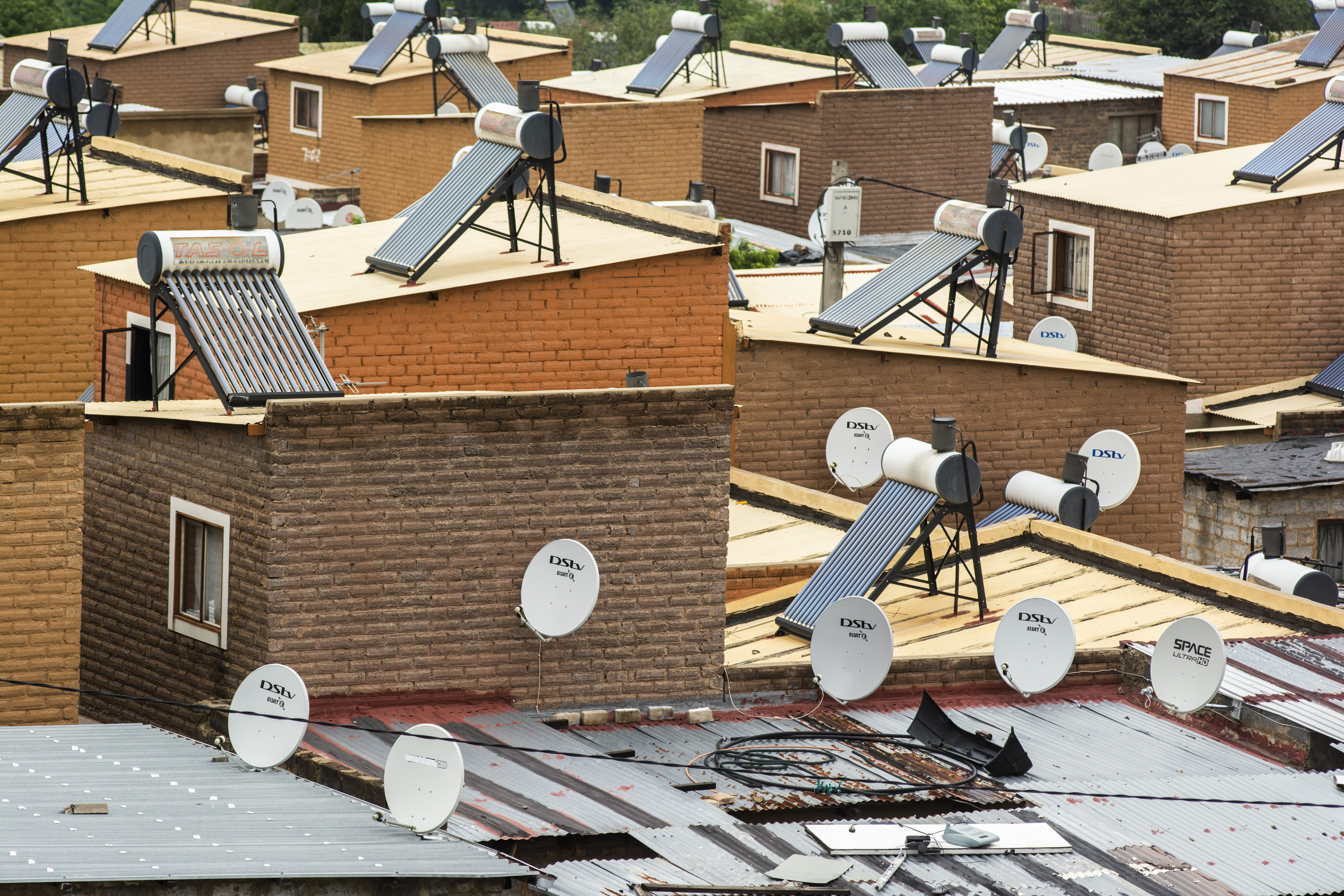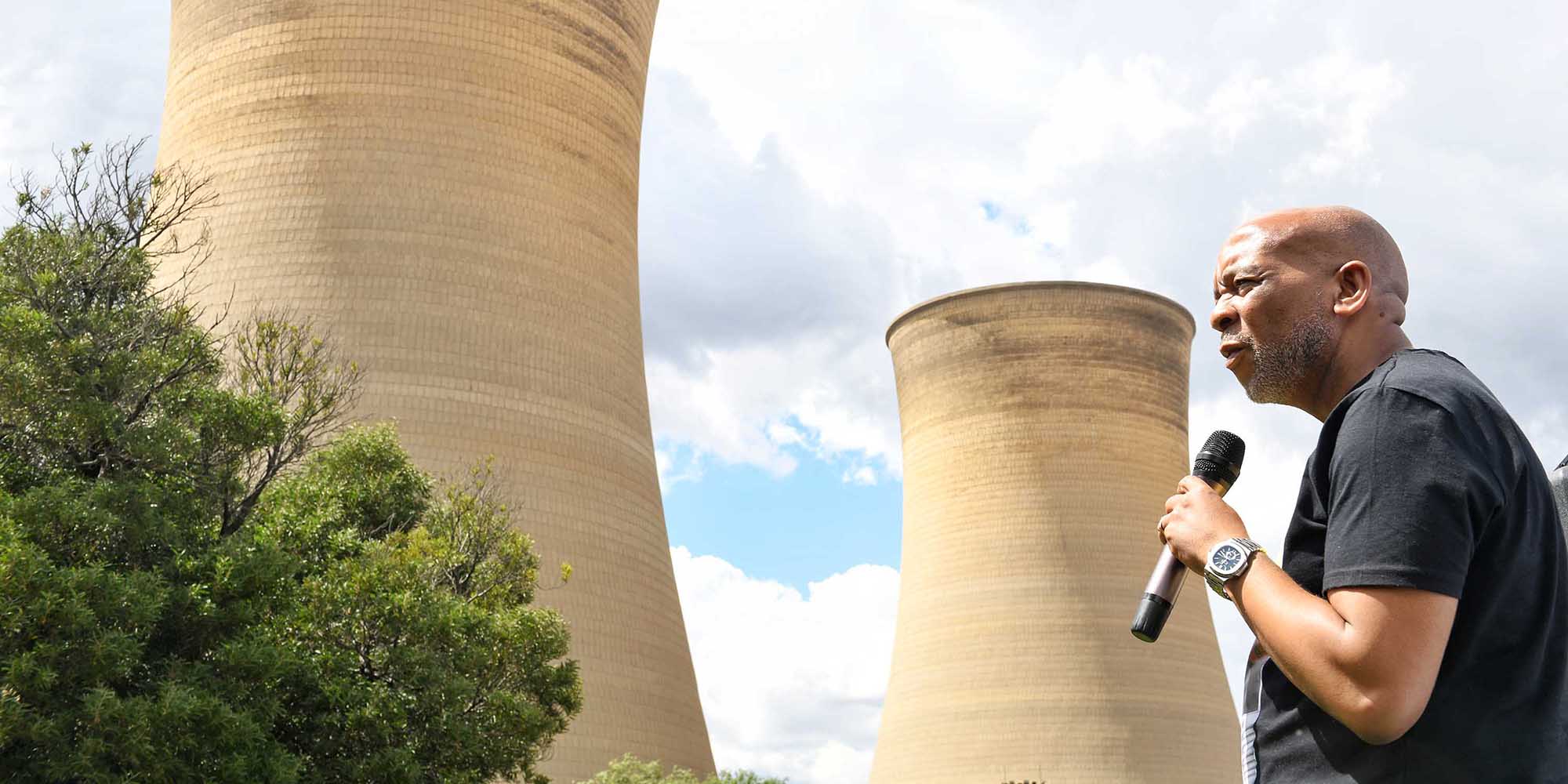Electricity Minister Kgosientsho Ramokgopa has a critical role in resolving South Africa’s energy crisis. Worryingly though, several proposals, such as powerships, extending the life of coal plants and investing in new coal, nuclear and gas, may drive up energy costs, increase pollution, and fail to solve our urgent energy crisis.
As the secretariat of the Climate Justice Coalition, we have written an open letter to the minister, warning against such false solutions and calling for a rapid and just transition to a more socially owned and renewable energy-powered future.
The evidence shows that embracing renewable energy sources, such as solar and wind, coupled with storage technologies, presents the most viable, cost-effective and environmentally friendly solution to our energy crisis. Economists and energy experts have demonstrated that if our renewable energy programme had not been derailed, most of the load shedding we currently face could have been avoided.
By investing in renewable energy infrastructure, we have the opportunity to not only solve our energy crisis but also reduce costs, decrease pollution, and create jobs. A just energy transition is essential to address the pressing issues of inequality, poverty, unemployment and climate disaster.
 Power lines near Eskom's Lethabo coal-fired power station near Johannesburg on 13 April 2023. Minister of Electricity Kgosientsho Ramokgopa has hinted that the life of the ageing fleet of coal-fired power stations may be considered as the country grapples with an electricity supply shortage. (Photo: EPA-EFE / Kim Ludbrook)
Power lines near Eskom's Lethabo coal-fired power station near Johannesburg on 13 April 2023. Minister of Electricity Kgosientsho Ramokgopa has hinted that the life of the ageing fleet of coal-fired power stations may be considered as the country grapples with an electricity supply shortage. (Photo: EPA-EFE / Kim Ludbrook)
We worry that the energy crisis is being used as an excuse to promote widespread and unchecked privatisation of our energy system. Privatising the sector would put it in the hands of large corporations primarily driven by profit motives, rather than the pursuit of public good. This move could compromise energy affordability and access, and a just transition that equitably shares the benefits of renewable energy with everyone.
We are also troubled by Ramokgopa’s proposal to extend the life of coal plants. Investing hundreds of billions of rands into ageing and poorly maintained coal plants could prove wasteful and inefficient. Instead, redirecting those resources towards renewable energy, where they can yield higher returns in terms of new energy, cleaner air and job creation, would be a wiser choice.
The trillions of rands in false solutions represents a significant opportunity for corrupt factions and lobbies who stand to benefit.
Delaying the decommissioning of coal plants risks undermining our climate commitments. Doing so could expose us to carbon sanctions, damaging our export potential and jeopardising climate investment and aid. Similarly distressing impacts will be had if we invest in new coal or fossil gas.
Modelling shows South Africa’s most cost-effective and reliable energy mix should be based primarily on renewables and storage, with only a small role for flexible, peaking power sources. For that peaking role, battery storage and pumped hydro offer more affordable alternatives to coal or fossil gas – which are more expensive, polluting and environmentally damaging. Nuclear is not an economically feasible solution either, given its high costs and decades-long build times.
Powerships are not the quick and easy get-out-of-jail card they are being sold as. They are an immensely expensive venture that diverts vital resources from more affordable, job-creating and sustainable renewable energy infrastructure. The controversies surrounding powerships, such as corruption allegations, cost uncertainties and environmental concerns, raise doubts about whether they will ever come online.
Read more in Daily Maverick:
How to beat load shedding at home... and other ideas
Eskom Intelligence Files
Together, proposals for powerships, gas, nuclear and coal could cost South Africa trillions of rands, making our energy system more expensive and polluting, while failing to properly solve our energy crisis. That is money much better spent on rapidly deploying solar, wind and storage, which have much shorter construction timelines and can more rapidly deliver sustainable and affordable energy solutions.
 Solar-powered water heaters on rooftops above shacks in Alexandra, Johannesburg, on 12 November 2020. (Photo: Waldo Swiegers / Bloomberg via Getty Images)
Solar-powered water heaters on rooftops above shacks in Alexandra, Johannesburg, on 12 November 2020. (Photo: Waldo Swiegers / Bloomberg via Getty Images)
 Wind turbines operate at the Gouda wind power facility beyond informal housing on 3 March 2021. (Photo: Dwayne Senior / Bloomberg via Getty Images)
Wind turbines operate at the Gouda wind power facility beyond informal housing on 3 March 2021. (Photo: Dwayne Senior / Bloomberg via Getty Images)
The trillions of rands in false solutions represents a significant opportunity for corrupt factions and lobbies who stand to benefit. As such, we recognise that Ramokgopa’s task is not easy. To effectively deliver on a just energy transition, the minister will need to push back against deep-seated corruption and powerful lobbies who aim to lock us into an expensive, polluting and privatised future.
At this critical juncture for our country, faced by intertwined economic and ecological crises, Ramokgopa will be judged by his ability to make difficult decisions and stand up to powerful interests. If he is willing to stand on the right side of history, the Climate Justice Coalition offers its help to take on those powerful interests and deliver a just energy transition for all. DM
Alex Lenferna and Mbali Baduza serve as the general and deputy secretary of the Climate Justice Coalition – a South African coalition of trade unions, grassroots, community-based and non-profit organisations.




 Wind turbines operate at the Gouda wind power facility beyond informal housing in Gouda, South Africa, on Wednesday, March 3, 2021. With South Africas state electricity utility in dire financial straits and straining to meet demand, the government has reverted to courting independent renewable energy producers to help power the continents most industrialized economy. Photographer: Dwayne Senior/Bloomberg via Getty Images
Wind turbines operate at the Gouda wind power facility beyond informal housing in Gouda, South Africa, on Wednesday, March 3, 2021. With South Africas state electricity utility in dire financial straits and straining to meet demand, the government has reverted to courting independent renewable energy producers to help power the continents most industrialized economy. Photographer: Dwayne Senior/Bloomberg via Getty Images